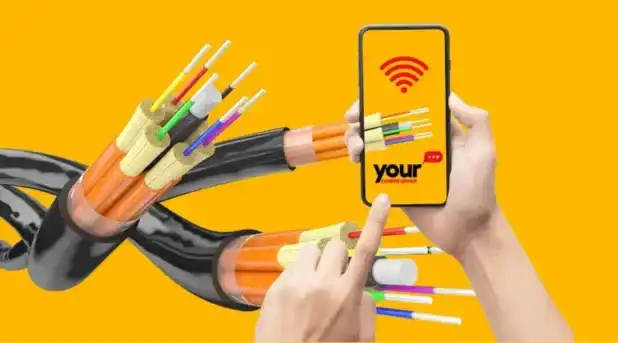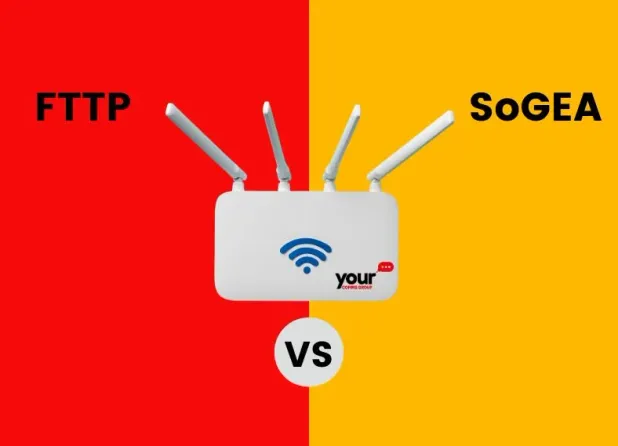2 min read
Who's Watching You Do Your Business?
To say that the mobile phone has become an essential piece of office equipment is something of an understatement.At YCG we work with a number of...
3 min read
Your Comms Group : Apr 8, 2022 4:32:42 PM

It’s been a quarter of a century since Pierce Brosnan donned his tux and led the world’s greatest spy out for his 18th cinematic adventure in Tomorrow Never Dies.
The film is notable for two things. The first is Teri Hatcher in possibly the most revealing Bond Girl role since Fiona Fullerton put some fizz into 007’s jacuzzi in A View To A Kill. The second is a remote-controlled BMW Z8.
At the time, Bond’s high-speed escape from a multi-storey car park courtesy of a video game style handset was as much the stuff of sci-fi fantasy as Marty McFly’s hoverboard in Back To The Future.
And while some of that epic set piece is still rooted deep in the land of an overactive imagination – Bond has clearly never attempted a remote-controlled high-speed exit from the Westgate shopping centre car park on a busy Saturday, for example – in some ways technology has already eclipsed it.
In Spain this week 60,000 delegates at the reincarnated Mobile World Congress (MWC) were treated to some mind-expanding insights into what our connected world will look like not decades from now, but in the foreseeable future.
Driverless cars may already be with us but, like the fly-by-wire planes that can take-off, fly and land themselves and already make up almost all of modern commercial flight, existing laws still require them to have human supervision behind the controls.
At this week’s MWC Mobile giants like Spain’s Telefonica, Sweden’s Ericsson and South Korea’s SK telecom all got to grandstand their own innovation, including a sneak preview of the fully automated driverless car that can navigate cities entirely safely.
There was also a robot barman, an avatar presenter so real you could be forgiven for believing her to be human, and – courtesy of SK – a virtual trip in Harry Potter’s flying Ford Anglia.
This is all made possible thanks to the scope of 5G and the technological possibilities a fully connected and communicating world can offer us.
But however funky the future might seem, all of these things are largely technological frippery – albeit frippery that comes at eye-watering cost.
The point, of course, is not whether there’s a market for endless trips in a flying Ford Anglia, but rather how the technology that makes that possible might be deployed commercially to offer greater consumer choice and open new revenue streams in a global economy.
MWC was, naturally, all about the dazzle. But for many of the delegates the question is more about how 5G can enable robot-managed production lines and warehousing, how supply chains can be synchronised not just across buildings but across continents and, literally closer to home, how it might facilitate a post-pandemic virtual workplace.
For our own clients, and especially those in the domiciliary care sector, it raises other interesting questions: can the mobile technologies of the future be reliably used to provide some level of support to carers in the field, for example?
There is an important human factor to bear in mind here, of course, in that the very essence of superior in-the-home care lies in solving the problem of social isolation; it’s inconceivable to even begin to consider that virtual care might be any sort of permanent substitute for the visit of a human being.
But there would certainly seem to be a compelling argument for 5G-enabled technology to be deployed in some sort of role. For example, it’s absolutely possible to imagine a care sector that deploys mobile technology to provide 24/7 monitoring of vulnerable or dependent people.
If we accept, as I think we must, that previous 4G technology has been Facebook’s key enabler, can you imagine what might be possible with connectivity that makes 4G seem almost sloth-like?
And that brings us quickly to the fly in the 5G ointment. Who will pay for it?
The cost of upgrading networks to meet the potential demand for connected services and systems that 5G will generate is astronomical, so it’s easy to understand why the big telecoms carriers might eye the immediate future with a degree of trepidation.
Aligned to the growing anticipation at the impending arrival of a super-connected world is a growing trend for mobile operators to apply pressure on heavy data users like streaming services to foot the bill for network upgrades.
Indeed, in South Korea SK Broadband is suing Netflix for the cost of an enforced server upgrade that was required to prevent the country’s mobile network going into meltdown at the height of the hysteria surrounding the platform’s all-conquering Squid Game show.
Analysts predict that between 2020 and 2025 European network companies will spend around 250 billion dollars upgrading their infrastructure – and even that won’t deliver the upgrades necessary to ensure adequate or satisfactory connectivity for some regions.
With spiralling investment needed and shrinking market share a reality of ongoing price wars, the big question will be whether shareholders in the world’s smaller network providers will be prepared to sign the cheques that will be required to stay in the game.
Equally, with the US and China dominating market share and slugging it out in an ongoing trade war, can they afford not to?
Consolidation is one option, but there is little appetite at the moment – certainly within Europe and the UK – to create a monolithic network infrastructure that might, to all intents and purposes, look like a monopoly.
There is little doubt that new technology in general, and 5G in particular, can offer much to a world that is growing ever smaller in communication terms.
But when the unstoppable force of consumer demand meets the immovable object of investor prudence, it may be that the future will be slower to come than we think.

2 min read
To say that the mobile phone has become an essential piece of office equipment is something of an understatement.At YCG we work with a number of...

Fibre broadband, also known as fibre-optic broadband, is a type of internet connection that uses fibre-optic cables to transmit data.

When it comes to choosing a broadband internet service for your business, there are many options to choose from that could be of benefit to you....